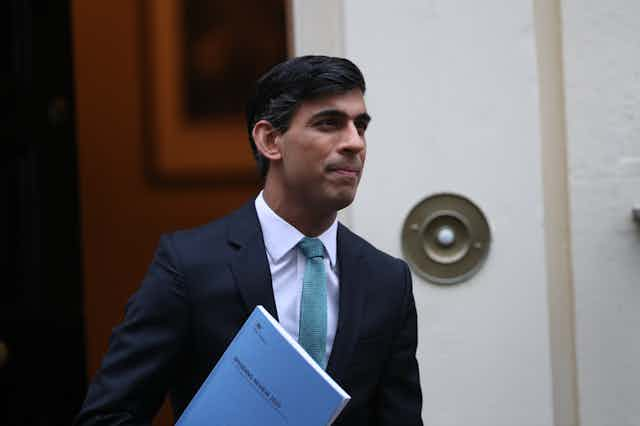Reading November’s spending review, local leaders will be left with many questions. They “live to fight another year” perhaps, but uncertainty surrounding local government finances continues.
Local authorities will see their core spending power boosted by 4.5% in cash terms over the next year. This avoids disaster, but will mean significant council tax increases. The £3 billion allocated for COVID-related costs is unlikely to meet the unprecedented demand on local government’s finances.
Collectively, local authorities have been on the front line in the fight against the coronavirus, despite public services lacking resilience after years of squeezed resources. To end a decade of financial uncertainty, made much worse by the pandemic, local leaders had asked for a meaningful, multi-year funding settlement. Their calls have fallen on deaf ears.
The chancellor of the exchequer, Rishi Sunak, has now repeatedly failed to listen to local leaders while the Treasury effectively holds sub-national government in a state of perpetual dependency. So much for English devolution.
It is striking that the Treasury – so often presented as the most political department in Whitehall – has been caught off guard more than once during the pandemic. Developing well-functioning political antennae requires listening and learning. It takes cooperation, not hubris – and engagement, not policy by diktat.
The Treasury stands accused of not seeing the bigger picture, but why?
Treasury control
In 2015, the then chancellor, George Osborne, presented his “devolution revolution” as being about moving power away from Whitehall and kickstarting regional growth and productivity. If money was spent closer to taxpayers, then prime minister David Cameron added, it would be spent more wisely.
But the UK has one of the most heavily centralised systems of financial control among OECD countries. Local authorities have limited ability to raise taxes or borrow. Nonetheless, they have considerable statutory responsibilities over some of the most challenging areas of public policy, including social care. Care homes, for example, quickly became the epicentre of the crisis, but local authorities had to wait as support packages trickled in.
The first wave of English devolution increased the responsibilities of sub-national government but the Treasury continues to hold the purse strings. Devolution, in short, is incomplete.

COVID-19 support packages – totalling around £6 billion – are estimated by local leaders to leave a shortfall of £1 billion this year. Reserves are being pushed to their limits and local authority incomes have plummeted. As uncertainty continues, cuts to non-essential, often preventative services, are likely to follow. This is a false economy. Several local authorities are in talks with the government about the use of capital budgets to avoid potential bankruptcy.
The current system offers limited wriggle room. As this “spending review” shows, local authorities must play a waiting game as the Treasury makes decisions behind closed doors and releases pots of money that regularly come with conditions about how it should be spent.
Prolonged uncertainty
Local authorities are complex organisations operating in an increasingly fragmented environment. To deliver public services, they must work with several government departments and delivery agents across a range of boundaries.
For the past three years, councils have received a one-year funding settlement. This short-termism is inefficient and makes longer-term planning impossible. Nothing is certain in a global pandemic but central government’s unwillingness to let go of power over financial matters limits the options available to local authorities.
Levelling up will involve accepting that local leaders know their communities and should be accountable to their constituents for the decisions they make. Whitehall is too distant from the reality on the ground, and its policies omit vital local information.
Alarming trends in local and regional government finances look set to continue. The acute phase of this crisis is nearing its end but, unable to plan, its legacy is far from over for local leaders and the communities they serve.
The future
As we emerge from this crisis, the recovery will be faster if people with the most knowledge of local challenges have real power to shape outcomes. There is an opportunity to empower, once and for all, local and regional authorities to drive growth. This does not mean being abandoned by the centre but being trusted to take the right decisions in the interests of their communities.
This meaningful devolution requires greater financial autonomy. How can local leaders plan, when their funds are sapped no sooner than they have been received and there is no visibility over future years’ funds? Local authorities empowered with greater capacity to control their own finances, but for which they are also accountable, would face less uncertainty.
The pathology of a “Whitehall knows best” mentality has been exposed more than once during this pandemic – with the centralised test-and-trace system being top of a growing list.
The Treasury sees itself as the driver of devolution. But the system it created was forged in its own image despite the Local Government Association’s concerns that you cannot fit “new and bold ideas into old frameworks”.
It’s worth remembering that the Treasury’s historic mission is to ensure value for money and to protect public finances. Working with, and listening to, people on the ground has the potential to save money and deliver better outcomes in the long run. A long overdue rethink of centralised political traditions is needed.

